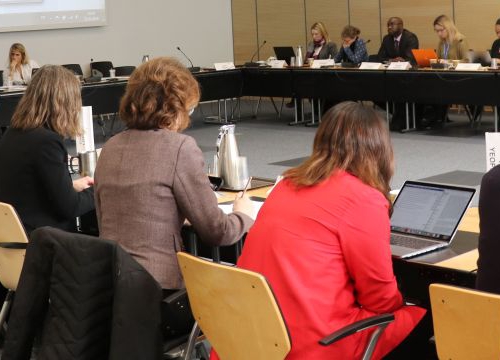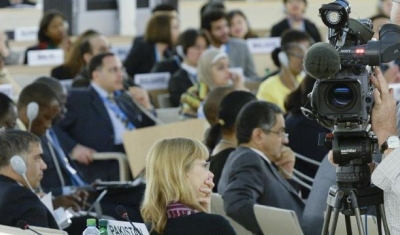Multi-Stakeholder Consultation to Integrate Gender-Sensitive and Gender-Responsive Frameworks in Business Activities


Geneva Academy
5 February 2019
At our consultation hosted for the United Nations (UN) Working Group on Business and Human Rights (WG), around 40 participants – academics, representatives of international organizations, members of UN treaty bodies, the private sector, business associations and civil society – discussed key issues and challenges related to the application of a ‘gender lens’ to the UN Guiding Principles on Business and Human Rights (UN Guiding Principles).
‘This consultation will feed into the work of the WG, which is currently developing guidance on applying a gender lens to the UN Guiding Principles. A guidance document will be presented by the WG in its June 2019 report to the UN Human Rights Council’ explains Felix Kirchmeier, Coordinator of the Geneva Human Rights Platform.
Identifying the Gender Dimension of each ‘Pillar’ of the UN Guiding Principles
Participants focused on all aspects of the UNGPs – the state obligation to protect, the business responsibility to respect and access to remedy – to integrate a gender-sensitive and gender-responsive framework in business activities.
‘We both discussed obligations and responsibilities of states and businesses on issues like gender integration in corporate policy commitments, gender-sensitive remediation, how to respond to discriminatory laws, policies, norms and practices, or gender-responsive adjudication of disputes by courts or non-judicial mechanisms’ underlines Felix Kirchmeier.

Presentation and Discussion of the Geneva Academy Report
The consultation was also the occasion to present our new publication Responsive Due Diligence for Business Actors: Human Rights-Based Approaches and discuss its main recommendations.
‘Surya Deva, Chair of the WG, welcomed the publication as it provides in-depth analysis on one of the areas to be covered by the WG, which is the question of gender-responsive due diligence’ explains Felix Kirchmeier.
About our Research Project on Human Rights and Gender Equality in the Context of Business Activities
This project aims to support the WG’s consultation process to apply a ‘gender lens’ to the UN Guiding Principles and thus contribute the promotion and protection of human rights and gender equality in relation to the business sector via research on international human rights law and policies related to gender equality guarantees and their application to business activities.
Additionally, it allows the Geneva Academy to host an international conference in Geneva to help the WG finalize its process of global consultations.










